Question And Answer
Publications
Articles, publications, books, tools and multimedia features from the U.S. Institute of Peace provide the latest news, analysis, research findings, practitioner guides and reports, all related to the conflict zones and issues that are at the center of the Institute’s work to prevent and reduce violent conflict.
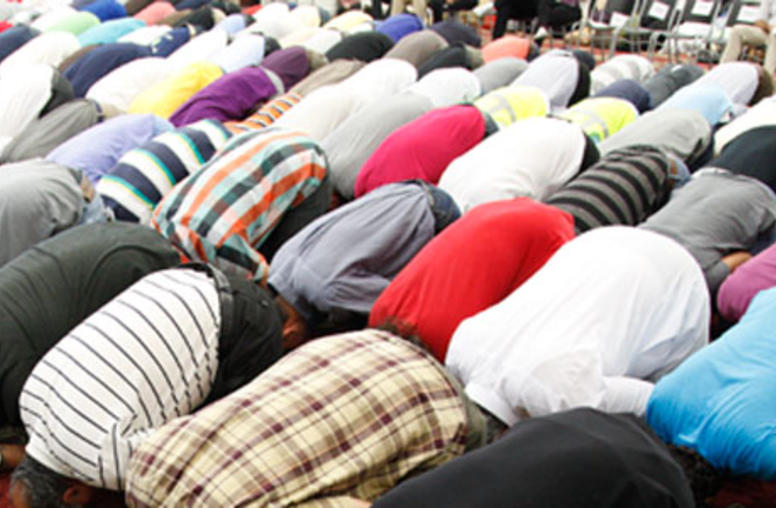
Ambassador Johnson Cook, Specialists Consider Role of Civil Society in Religious Coexistence
The U.S. State Department’s “strategic dialogue” with international civil society, including faith leaders abroad, is underway and “planting seeds for the future” in fostering peaceful religious coexistence, Ambassador Suzan Johnson Cook, the U.S. ambassador-at-large for international religious freedom, said at the U.S. Institute of Peace (USIP) on October 22.
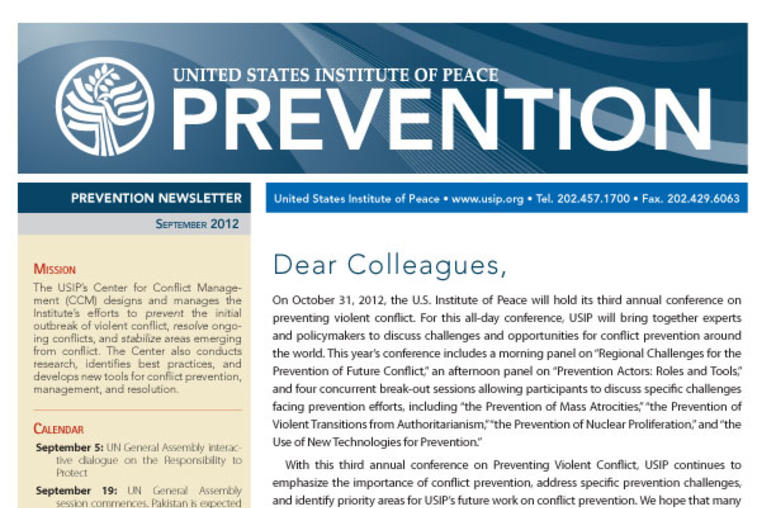
USIP Prevention Newsletter - September 2012
The September 2012 Prevention Newsletter features a spotlight on The Syrian Civil War: Threatening Lebanon's Fragile Stability: Syria's year-and-a-half long internal strife has not only challenged Lebanon with tens of thousands of refugees, gun battles on the border and kidnappings, but reignited tensions along Lebanon's own sectarian fault lines.
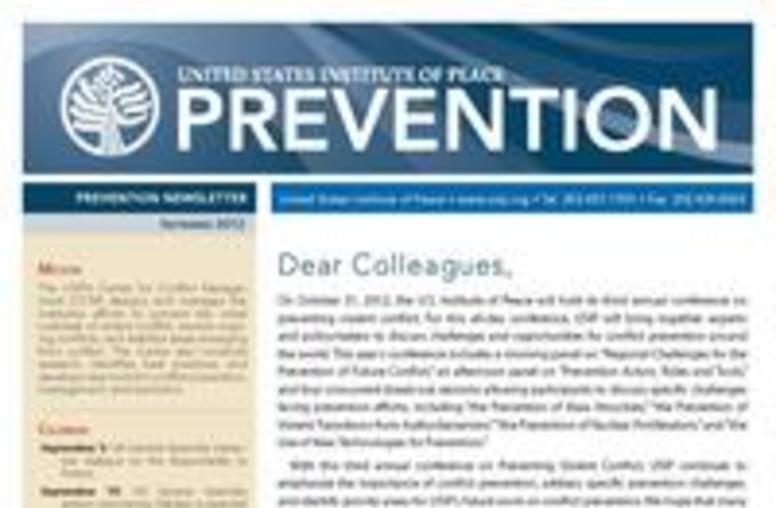
USIP Prevention Newsletter - September 2012
The September 2012 Prevention Newsletter features a spotlight on The Syrian Civil War: Threatening Lebanon's Fragile Stability: Syria's year-and-a-half long internal strife has not only challenged Lebanon with tens of thousands of refugees, gun battles on the border and kidnappings, but reignited tensions along Lebanon's own sectarian fault lines.
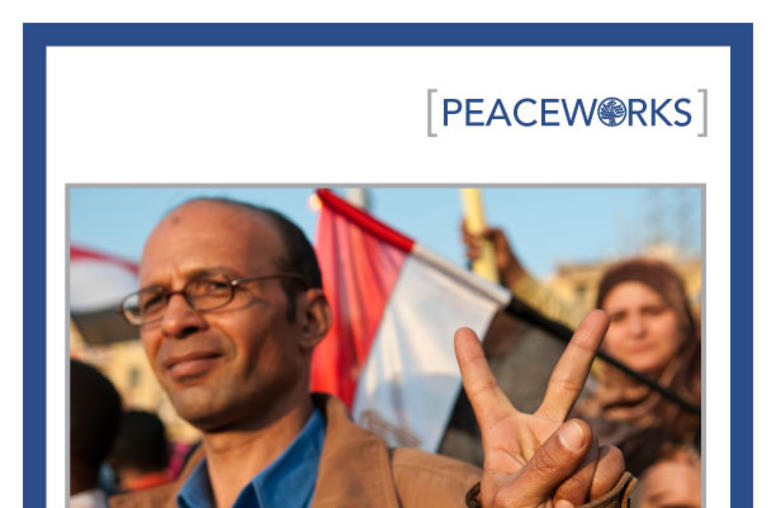
Democratic Breakthroughs: The Ingredients of Successful Revolts
Although each revolution is different, each successful case of democratic breakthrough shares common domestic and international influences. This report examines 11 cases of past successes at removing autocratic regimes and establishing elections. It then applies its findings to the emerging revolutions of the Arab Spring.
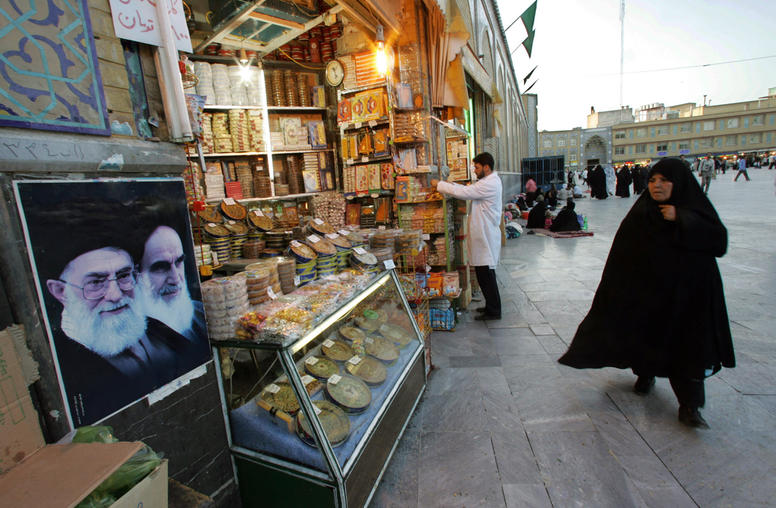
Making Sense of Iran’s Complex Political Changes
A group of Iran analysts previewed their latest research findings in a discussion at the U.S. Institute of Peace co-sponsored by the Woodrow Wilson International Center for Scholars on June 27, 2012. Drawn from USIP’s Iran Internal Politics Study Group, six scholars looked at the recent dramatic changes in Iran’s political system and offered their take on what these changes mean for the country, its reform movement, and the United States.
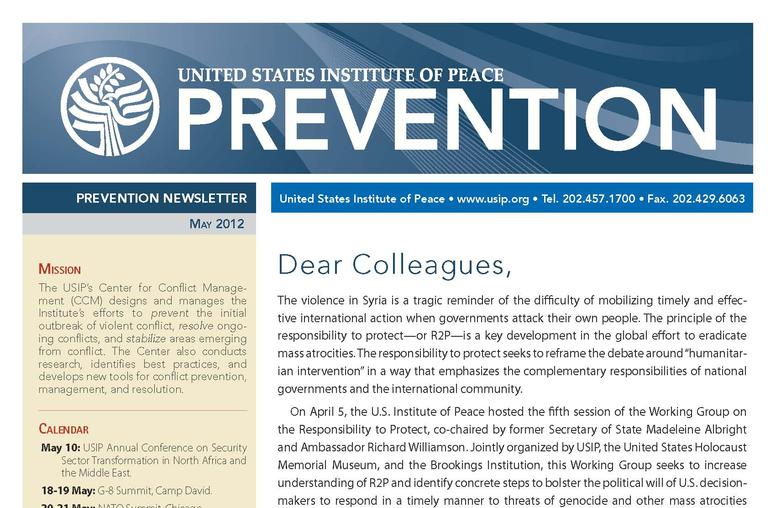
USIP Prevention Newsletter - May 2012
The May 2012 Prevention Newsletter features a spotlight on the North Korean Missile Launch: On April 13, North Korea defied the international community and conducted a failed long-range ballistic missile test.
Despite Big Unresolved Issues, Progress in Iran Nuclear Negotiations
Daniel Brumberg looks at the outcomes of the April 14 "P5+1" talks with Iran in Istanbul.
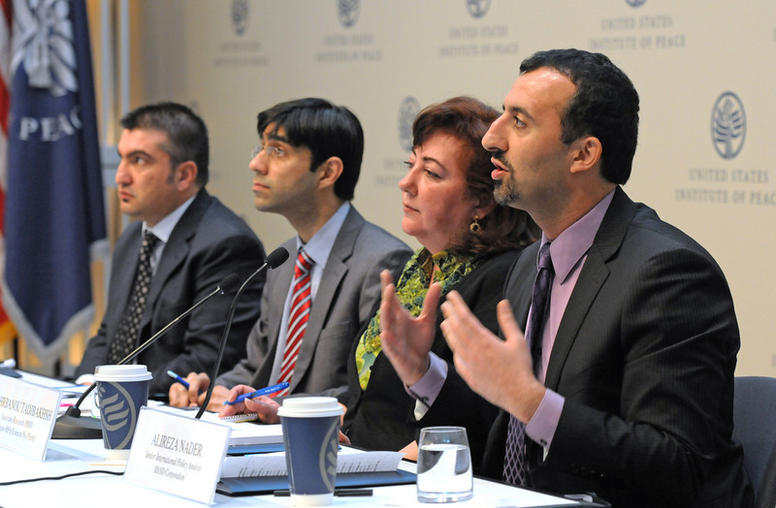
Finding a Regional Solution for Afghanistan
On April 6, USIP's South Asia Adviser Moeed Yusuf; Abubakar Siddique, senior news correspondent for Radio Free Europe/Radio Liberty; Shahrbanou Tadjbakhsh, associate researcher at the Peace Research Institute Oslo and professor MPA at Sciences Po in Paris; and Alireza Nader, senior international policy analyst at the RAND Corporation discussed the various problems and potential solutions to improving cooperation and collaboration from Afghanistan's neighbors with the ultimate objective of pro...
Examining the Prospects for Iran Nuclear Talks
Talks between Iran and a group known as the P5 plus 1 (the five United Nations Security Council permanent members plus Germany) on Iran’s nuclear programs are expected to begin on April 14 in Istanbul, Turkey. The resumption of negotiations might represent an important juncture in the long saga of international efforts to restrain and verify the nature of Iran’s nuclear efforts, which Tehran contends is intended to develop energy sources and conduct research but which the United States and ot...
Iran Oil Sanctions: A Race against Time
International economic sanctions designed to force the Iranian regime to prove that it is not seeking to develop militarized nuclear capacity by targeting the country’s oil exports will take some time to be fully effective. Meanwhile, compensatory tactics by Iran and some of its trading partners and allowances for geostrategic reality in the global oil market could affect the efficacy of the sanctions regime.